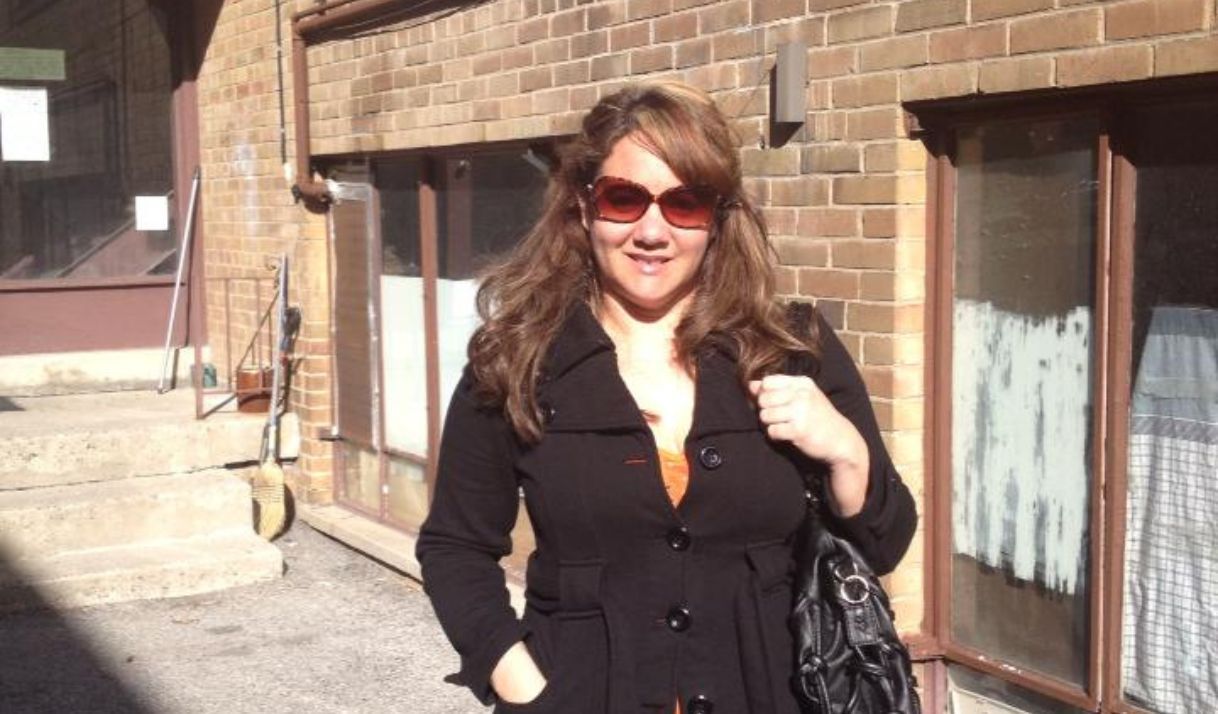The plane in which Cuban Glenda Corella Cespedes was flying from Toronto, Canada, landed on March 7, 2023, at Frank Pais Airport in Holguin, Cuba. Instantly, five immigration officers entered the aircraft. One shouted, “Everyone can get off the plane except Glenda Corella Cespedes!” They asked for her passport, and she handed over her Canadian passport. “The Cuban passport too,” the officer told her.
Glenda had landed in Cuba to visit her family but was prevented from getting off the plane and was immediately sent back to Canada. Unlike other Cubans who have not even been able to board a flight to the island, Corella had not been notified of the entry ban into national territory. However, her experience is not an isolated event.
Since 2012 Corella Cespedes has resided in Canada, after having waited eight years for the Ministry of Public Health to release her and be able to leave Cuba. She had worked as a nurse while still in Cuba.
The immigration authorities offered no explanation. According to Glenda Corella in an interview with EL TOQUE, the pilot asked the agents why they did not notify Glenda of the decision 72 hours in advance, a protocol followed by nations such as China and Vietnam, which usually apply the same practices. The explanation was that Glenda had not filled out the immigration form within the required timeframe beforehand, an argument that she immediately denied. “It was only now that we were told you would not be allowed in,” the immigration agents said.
The document denying entry that Glenda was given was signed by the head of Immigration at the Holguín airport, but without a correct name (an arbitrariness since it is an official notification).
Since Glenda left Cuba, she returned frequently to visit her family. Her mother has lung cancer. In her luggage she carried medicines and supplies for the treatment of the disease. The systemic crisis afflicting the country has greatly affected the health system, one of the main pillars that the Cuban Government used to highlight proudly in the international arena.
Glenda has denounced on social media the deficiencies and impoverishment of Cuban health, especially the situation in Gibara, her hometown. After starting to make critical posts on her Facebook page, posts from a fake profile began threatening her to keep quiet.
“We know you”; “your Facebook is monitored”; “don’t continue”; “your sanction is two years, but if you keep sharing things on your Facebook wall it will be for life”; “Think of your mom who is in Cuba.” They also addressed her friends and followers and told them not to comment or talk because there would also be consequences for them.
Among the usual practices of State Security agents to silence citizens opposed to power are threats, coercion and blackmail. The anonymous threats made to Glenda materialized when she landed in Cuba.
“My parents and I are devastated because we believed that we were going to see each other. It has been very hard, but they are aware that I will not stop, I will continue denouncing the abuses and outrages. They told me to keep it up, that they were with me. Denouncing is an obligation for both those inside and outside. We can’t be afraid to express what we feel.”
Punishment by the powers that be
The obsession with stifling any type of dissent has led the Cuban government to violate international conventions such as the Universal Declaration of Human Rights, which states in Article 9 that “no one may be arbitrarily detained, imprisoned or exiled.”
The International Covenant on Civil and Political Rights argues that no one may be arbitrarily deprived of the right to enter his or her own country; while the American Convention on Human Rights establishes in Article 5 that “no one may be expelled from the territory of the State of which he is a national or deprived of the right to enter it.”
Banishment is a quasi-archaic practice, but one still employed by totalitarian regimes. A recent example occurred in Nicaragua when Daniel Ortega’s regime banished more than 200 political prisoners to the United States, declared them traitors to the homeland and stripped them of their nationality.
Among the cases of Cubans exiled in the last decade are that of Professor Omara Ruiz Urquiola, who has been banned on four occasions from entering the country to reunite with her mother; that of art historian Anamely Ramos; and that of other professional journalists such as Carlos Manuel Alvarez and Karla M. Perez (who ended up stranded at the Panama airport after an official notified her that she could not enter Cuba).
The Cuban powers that be not only punish well-known figures from the opposition, activists, or independent journalists, but also ordinary citizens like Glenda.
The barrier to enter Cuba is justified by a Law which denies entry to any person who organizes, stimulates, carries out or participates in hostile actions against the political, economic, and social foundations of the Cuban State. It also prohibits entry to any person when reasons of defense and national security recommends so.
Cuban jurist Eloy Viera warns that an analysis focused exclusively on what Law establishes forgets that the regulations must comply with an ideal of justice, or at least must incline towards its pursuit: “There is no justice or inclination towards its pursuit in a law that legitimizes the violation of human rights. There is no justice in a law that serves only to deepen the absolute power of a state no matter what its citizens suffer along the way. In the face of an unjust law, peaceful civil disobedience can be established as a valid political act of citizenship,” he explains.
Cuban law recognizes banishment as an accessory sanction, which implies that there must be a decision of a court that is accompanied by a main sanction that can be imprisonment or a fine. For the sanction to be imposed, it is essential that the person has been tried. There has been no prosecution in Glenda’s case or those that have preceded her.
The Cuban government has repeatedly refused to legally respond to its human rights violations, particularly those linked to politically motivated bans on nationals entering the country.
In March 2023, several Cuban human rights organizations and activists participated in a public hearing entitled Right to the Movement of Persons in Cuba, as part of the activities of the 186th Period of Sessions of the Inter-American Commission on Human Rights (IACHR).
Glenda’s case does not appear to be the last. Today Cuba is a country with more than a thousand political prisoners; A country that threatens and imprisons peaceful protesters, activists, journalists, and influencers while pressuring them to go into exile from which there is no return.
This article was translated into English from the original in Spanish.










comments
We moderate comments on this site. If you want to know more details, read our Privacy Policy
Your email address will not be published. Mandatory fields are marked with *